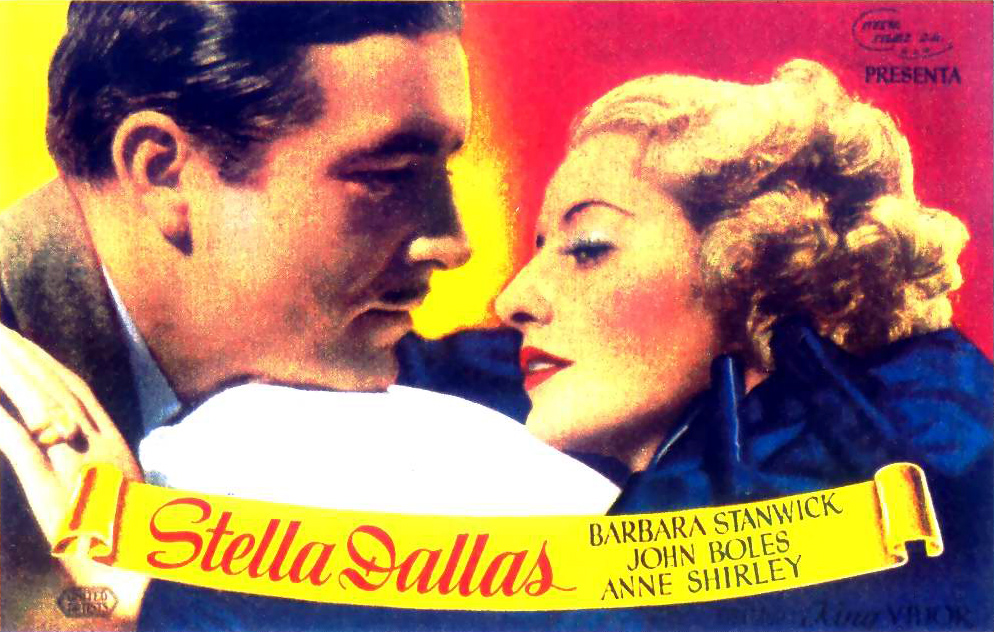I have ten movie notes to catch up on. Rather than stuff them all into one big post that will take a month to write I am going to just do short commentaries on each one separately.
Stella Dallas had been sitting in the 'unavailable' section of my movie queue for about three years when it suddenly turned up in the mail one day. Based on a novel by the once-popular Olive Higgins Prouty, whose name has turned up in these screens (those being the ones on my site) before, the 1937 movie was the second adaptation, following a silent version that had come out in 1925. King Vidor, probably better remembered among the serious now for his silent masterpieces, was the director, and the star was the great Barbara Stanwyck, who is much-loved among internet film aficionados. There were a few moments here where I thought I might be beginning to glimpse the genius of Barbara Stanwyck, though on the whole I was still not possessed by it. I thought, for example, that she often overplayed the vulgarity and low breeding of Stella Dallas, which would have been obvious at a much lower degree, though I guess the spectacle and her contrast with the country club set would have been considered humorous at the time. Even more than other movies from the Depression era, there is no ambiguity in this one about how better it is to be rich and go to the best schools and run with the best people than otherwise, even to the point of giving up your sixteen year old daughter who is all you have in the world, and renouncing all claims to seeing her again, because your social background and position is too awful and contaminating an influence if your daughter is to have any hope of a desirable life (the plot of the story is that the son of a disgraced millionaire, temporarily self-exiled to a nondescript mill town, impulsively marries the working class Stella and has a daughter with her, soon after which however their impossibly disparate backgrounds cause them to drift far apart. Stephen Dallas eventually re-unites with his old horseback-riding flame, who is conveniently widowed as well as possessed of her own millions, and the latter part of the movie concerns Stella coming to realize that of course she must give up her daughter to go and live her father and his new wife and partake in the superior life they know). This attitude is consistent with Olive Higgins Prouty's other work that I know, all of which involves to some degree the Boston Brahmin circles in which she moved, and involves a character, or multiple characters, who are the inheritors of this exalted blood, or spirit, but due to one circumstance or other need time and the undergoing of some ordeal before they can rise to the exalted level where they inherently belong.
This movie has a lot of the expected studio charms of its era, music, sets, the sense, especially pronounced in this, that there are some people out there who have pretty swell lives, and the idea that these exist should give you some twinge of happiness even if one personally is not capable of living that way himself. They really understood social humiliation back in the 30s. Modern scenes of humiliation where someone is getting mercilessly taunted and laughed at by a mob or having his manhood, either physically or intellectually, eviscerated by some alpha male or female, tend to annoy me, but the scene of the 10th (?) birthday party where none of the classmates showed up because the other families did not accept the mother, Stella, as worthy of their patronage really got to me. And the scene at the end, Laurel (the daughter)'s wedding, where Stella is forced to stand outside in the cold looking in on the service though a window, and the new rich mother demonstrates her humanity by asking the butler to leave the shades open, is incredible, because it is played as though this would be the absolutely natural thing to do in such a circumstance.
Subscribe to:
Post Comments (Atom)


No comments:
Post a Comment